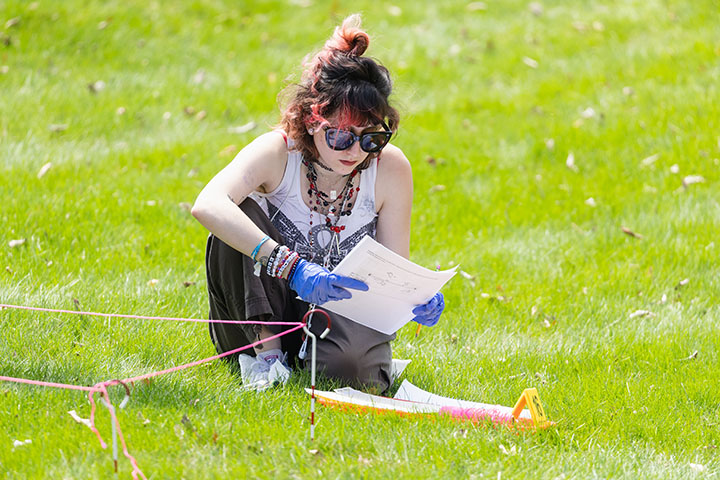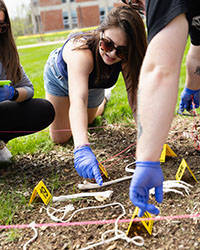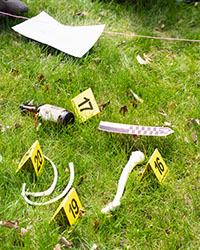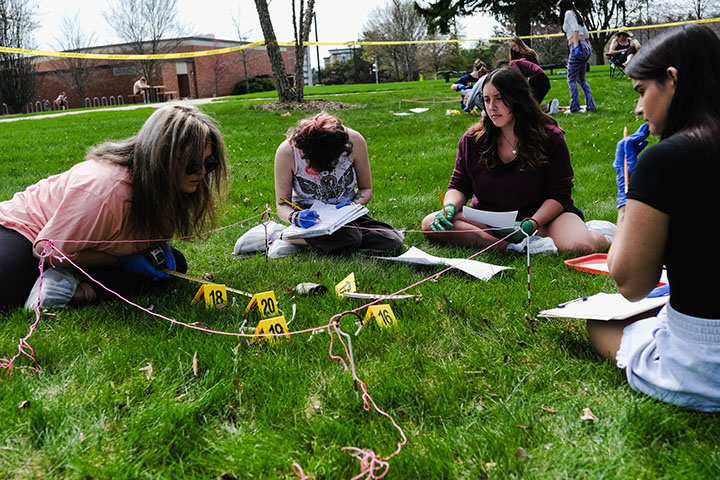Anthropology
Why study anthropology at CMU?
Anthropology is the study of people through time and space. You’ll study archaeology, cultural anthropology, linguistic anthropology, biological anthropology and applied anthropology to prepare for a variety of careers in this dynamic field. You can major in Anthropology, to earn a bachelor’s degree, or pursue a minor in Anthropology.
Consider these key features about studying Anthropology at CMU:
- Fieldwork experiences and curriculum on societies throughout the world and research opportunities with experienced faculty.
- Study-abroad possibilities.
- Professional development through on-campus organizations such as The Anthropology Club.
- Faculty members who are active researchers, activists, consultants, community organizers, officers in professional organizations, and authors and editors of relevant publications.
- Small classes allowing for specific study and close interaction with instructors.
Degrees and certificates
{{undergraduate.Name}}
{{undergraduateCertificate.Name}}
{{graduate.Name}}
{{graduateCertificate.Name}}
{{doctorate.Name}}

It was a lovely late-April afternoon on Central Michigan University’s campus. The sun shone. Maple buds popped. A bird sang. And in the grass next to Anspach Hall, students boxed off grass and photographed bones, shoes and other evidence of a grisly crime.
It was, of course, just a class assignment, a way to get first-hand experience in how crime scene professionals knit together the facts of someone’s untimely end.

In one of the boxes, Cathy Willermet, the faculty member leading the course, showed students how to use a protractor and a length of yarn to plot on graph paper where in the box a rib lay.
“Triangulation is the fastest way,” said Willermet, chairwoman of the Philosophy, Anthropology and Religion Department. Students, divided into groups for the assignment, gathered around to watch.
The students went back to their assigned boxes to give it a try themselves.
For Aaliyah Howard, who is graduating this year with an eye on a career in law, it was an opportunity to cap her undergraduate career with an elective related to something that’s always intrigued her.
She took forensics in high school, during the pandemic, so this gave her a chance to put what she learned in the classroom into practice.

It was also a great learning experience, she said. Her group mapped out the evidence in their box and sketched it out.
But she took the course because she needed an elective and one of her friends said it was a lot of fun.
This semester’s course is full, like it normally is, Willermet said. It isn’t a requirement for Howard’s degree, but it is for the forensic studies certificate.
The certificate is designed to provide students with a solid experience studying forensics and also meet the needs of future employers.
Willermet said she and Kyle Scherr, a faculty member in the Psychology Department, are eyeing a potential expansion of the program into a minor. Employers have told her they like students who pair studies in forensic science with another major like biology or psychology.
They’re also exploring opportunities for interdisciplinary study with other departments.

